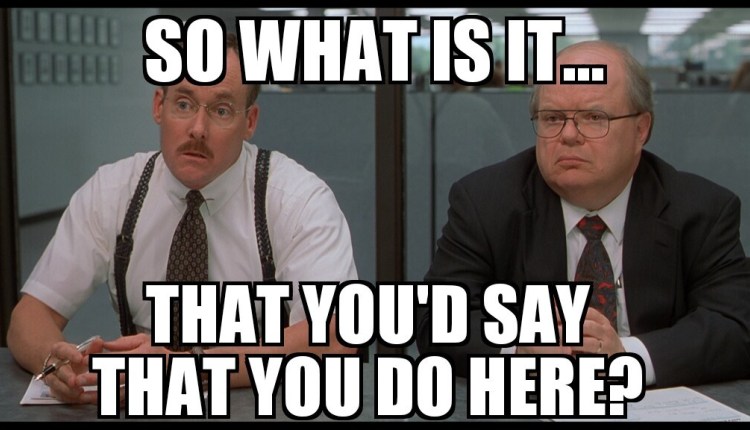It was a cold, snowy winter day in Longmont, Colorado and I was huddled with Roccor’s CTO, Mark Lake, over a cup of coffee inside Roccor’s aptly named coffee shop “Peace of Grind” (and yes, that is the correct spelling). Mark was grilling me on what it is I actually do in my CEO role at Solid Power, clearly implying that what I definitely don’t do is make batteries (an obvious critical need for an advanced battery company).
It should be noted that Mark is a big fan of the cinematic masterpiece, Office Space, so there was an element of “what would you say you do here?” in his line of questioning. But his point was well taken; I don’t make batteries and yet here I am, the CEO of a leading advanced battery development company. Heck, I didn’t even like chemistry in college so what makes me so uniquely qualified to lead a chemistry company on steroids?
I am a firm believer that everyone has their own “superpower.” Whether it be exceptional patience, calm under fire, speaking in public or mastery of physics, we all have something that we excel at relative to our peers. In my case, I excelled in my university studies but discovered fairly early in my career that my engineering aptitude was considerably less than stellar. While I could appreciate the mastery of understanding “how” an engineering problem is solved, I quickly realized that I lacked the patience in the pursuit of the answer. Frankly speaking, I also lacked much of the inherent engineering intuition that I observed in my peers and coworkers.
However, I did discover my fascination with the “why” – why are we solving this problem in the first place? This natural gravitation towards the “why” eventually pushed me into a new business development role since often answering “why” involves pursuing and securing resources. Asking “why” too many times is also what led me to start my own entrepreneurial journey as it brought me into conflict with the business models of my previous employers.
Anyone who works with me will often overhear me say “don’t overthink it” when confronted with a highly complex problem or situation. I typically utter this phrase when interacting with someone who is in the midst of unpacking a problem to an excruciating level of detail. In such a situation, I immediately retreat to “first principles” that result from a barrage of “why” questions: “why is the customer paying us to solve this problem,” “why does this organization exist” and “why does this engineered system function the way it does or is intended to do.” Only by addressing these “first principals” can I then proceed to the next level of detail.
As engineers and scientists, we receive numerous years of education on understanding “how” problems are solved but less so on “why” are we solving this problem. Further, effectively answering “why” can also require a degree of self-control, humility and self-awareness since it necessitates checking biases (e.g., “Of course this task is critically important, I’m doing it!”) and practicing a high degree discipline (e.g., “Of course I should continue to solve this engineering problem, I have the tools to do so and I enjoy it!”). I eventually discovered that my natural appreciation for the “why” was my “superpower” and that thankfully for my job security, it is a rare individual who is blessed with a wealth of superpowers!
Which brings us back to that cold and snowy day at Roccor HQ… Mark and I were sitting at one of those new-fangled dry-erase tables that the kiddos love as it allows them to quickly jot down their oh-so-brilliant ideas before they vanish as quickly as they arrived. As such, I grabbed a dry-erase marker and quickly sketched out an image in order to clearly illustrate what it is I do vs. what I don’t do all within the context of “Things Needing Doing” (that’s now trademarked, BTW). Being sensitive to Mark’s engineering sensibilities, I answered his question in the form of a graph. While Mark was indeed correct in that I don’t directly contribute to efforts in advancing the company’s battery technology, I had to enlighten him that I do indeed play an essential role at Solid Power.

Much like a building cannot stay upright without a solid foundation (note that I have degrees in Civil Engineering so am wholly qualified to use this analogy), my ultimate responsibility as the company’s CEO is establishing the underlying mission that the company executes upon or in other words, establishing the company’s “why” and the leaving the “how” to the true experts in the field. I hire people who compliment me (i.e., possess “superpowers” that I do not possess), make sure they have the tools to succeed and get the hell out of the way. Or in the words of Office Space’s Tom Symkowski explaining to The Bob’s: “I deal with the goddamn customers so engineers don’t have to. I have people skills; I am good at dealing with people. Can’t you guys understand that?”


Recent Comments